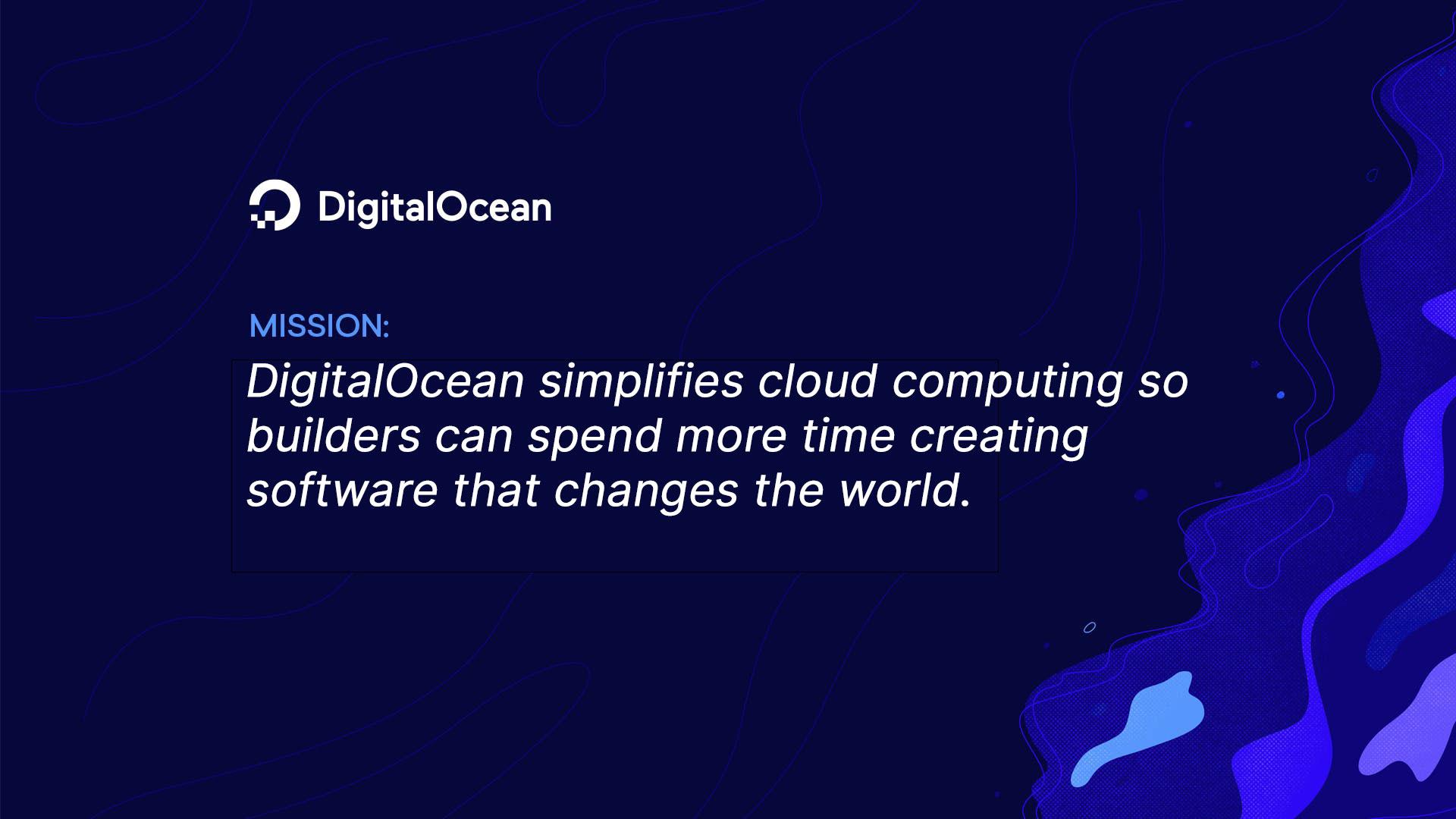We spoke with three of our summer interns, Shivani Kumar, David Hwang, and Carrie Wesley, to learn what their experience has been like at DigitalOcean.
Q: Let’s do some introductions. Can you share your name, area of study, and what team you joined?
Shivani: I just graduated from the University of Central Florida with a Bachelor’s in Computer Science. I joined DigitalOcean as a Software Engineer on the App Platform team.
David: I’m working toward my Master’s in Computer Science at the University of Georgia. I joined DigitalOcean as a Software Engineer Intern on the Kubernetes team.
Carrie: I’m working on my Master’s of Learning Design & Technology at CU Denver. I joined the Organizational Development team.
Q: How did you hear about the internship program at DigitalOcean?
Shivani: I applied for a summer internship last year but didn’t get the position. I stayed in touch with the Engineering Manager throughout the year, and they helped me figure out what requirements I needed to meet. I was able to reapply this year, and this time I was selected.
David: I had my eyes on DigitalOcean and applied when I saw the job posting online for an intern position on the Kubernetes team. I reached out to one of the Engineers from the team and showed him relevant projects I have worked on and asked about the requirements for the position and the team.
Carrie: I applied to quite a few places. I chose DigitalOcean because of my experience with the people here.
Q: What was the interview process like?
Shivani: The process for me was simple. I had two 30-minute interviews with the hiring manager and another engineer on the team. They asked about my background and experience, and let me walk them through a couple of technical questions. Then they explained the team and the requirements and answered any questions that I had. I heard back with an offer within a couple of weeks.
David: I had two 30-minute interviews back to back. One was with the hiring manager and the other was with a Senior Engineer on the team. The first interview was more conversational, asking things like why I was interested in DigitalOcean and getting to know me. The second interview was more technical. They asked questions about how I would design something. In that interview, it didn’t seem like they were looking for a perfect answer but instead wanted to know how I would approach the question. Overall, the interview experience was quite casual and the interviewers were friendly.
Carrie: The interview process at DigitalOcean was different than most interview experiences. My first conversation with the hiring manager really made me feel comfortable. I’m a former teacher and I found out he’s a former teacher too, so we had that instant connection. I asked about his career and how he got to this point. He let me guide the conversation and didn’t ask me a lot of questions; rather let me ask all the questions I wanted to ask.
Q: What was the onboarding process like?
Shivani: The onboarding process was a lot of fun. I was able to meet a lot of people and make a lot of new friends! My first steps were getting to know the team, my manager, and the technologies we use. I was given an onboarding document that I could read through and start working on. We’ve been able to get to know the other interns as well and that’s been really great.
David: After meeting my team and my mentor, I was able to dive right into tasks pretty quickly. I was given onboarding documents that I could read through at my own pace and I felt supported getting started.
Carrie: In between my interview and beginning the official onboarding process, my team invited me to join the virtual team-building activities that they do regularly. I got to meet everyone and get to know my team before I even started working. It was amazing. I had fun and it eased my nerves before my first day.
Q: What do you enjoy about DigitalOcean?
Shivani: DigitalOcean gives back to the community in so many ways—through tutorials, documentation, and more. That’s the main reason I wanted to intern with DigitalOcean. They also give back to their employees. One thing I noticed is that whenever someone asks a question, there are so many people that jump in to help solve the problem.
David: The tasks that I’m working on and the team I’m working with are very relevant to my interests. People are helpful beyond expectations. They’ll spend 15-20 minutes with you going into details, giving examples, and trying to make sure I get the information I need. This happened before even joining DigitalOcean. I was curious about the team so I reached out to someone and they gave me more information and help than I imagined they would! The emphasis on culture here and practicing our values is awesome.
Carrie: My favorite part of DigitalOcean is the culture. I could tell it was a special place from the website, but when I started working here I realized they aren’t kidding when it comes to culture. Even though it’s remote, I feel connected. I love the support given to employees through things like the ERGs. You can really see the values in action.
Q: What’s one thing you’ve learned or will take away from this experience?
Shivani: Ask questions whenever you need help. Anytime I run into a problem or am confused, my mentor is always willing to help out. He would check up on me if he hadn’t heard from me in a while. I will try to figure it out on my own usually, but I learned that if I spend a good amount of time on something and can’t figure it out, it doesn’t hurt to ask questions.
David: I’ve learned to dive deep into a topic. There are a lot of concepts in computer science and when you dive deep into topics you begin to understand and recognize patterns that can be applied across different parts of technology. I’ll take that with me.
Carrie: Coming from a teaching background and being in grad school working on my own a lot, this experience has taught me to collaborate more effectively. I’ve been able to practice giving and receiving feedback and that’s a skill I wouldn’t have learned without coming to DigitalOcean.
Q: Any advice for future interns?
Shivani: Don’t be afraid to ask for help. It’s natural to have imposter syndrome, especially when you’re surrounded by people that have a lot more experience than you but learn that it’s okay to ask for help. People want to help you learn. Remember, everyone starts somewhere.
David: Be specific with your interests and needs. Networking is important, but before you reach out to people you need to be able to demonstrate interest through the efforts you have put into learning the technology or relevant concepts.
Carrie: Ask as many questions as you can; that’s been the biggest learning for me. I’ve faced a lot of imposter syndrome coming from a non-technical background. Don’t be afraid to jump in. Try to collaborate, ask questions, and speak up.
Interested in learning more about what it’s like to work at DigitalOcean? Check out a list of benefits and open positions on our careers page.


